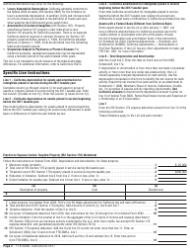
To succeed in any corporate environment, accountants must have a variety of skills. After receiving a bachelor’s degree, they need to ensure that they are prepared to handle financial data management, advice and analysis, reporting compliance, and financial report preparation. Although every state has different qualifications for licensing CPAs, all of them require a bachelor’s degree with a certain number of hours dedicated to the study of accounting and business core courses. Some states specifically require a degree in accounting and several upper level accounting courses. Along with the education and work experience, all Certified Public Accountants must pass rigorous testing.
They must also have computer abilities in order to maintain and use digital databases through various software applications. Just as a GP cares for your entire well-being, an accountant cares for the whole scope of your financial health. And they give you meaningful insights on keeping your finances in tip-top shape. They can also diagnose monetary problem areas and prescribe methods of improvement. In addition, CPAs are considered fiduciaries with a legal duty and power to act on behalf of, and in the best interest of, their clients.
CPAs can be distinguished from an accountant because they have earned the professional designation through a combination of expanded education, experience and state licensing. A CPA is particularly important to an individual because a CPA can provide advanced taxation services along with financial planning services. They can represent you in front of the IRS if you are audited, which an accountant cannot do. What additional commitment to education is required for CPA certification? The BLS notes that all states require CPA candidates to complete 150 semester hours of college coursework to be licensed. Given that this is more credit hours than you may earn in a typical bachelor’s degree program, many CPA candidates opt to pursue a master’s degree before taking the CPA exam.
What Are the Responsibilities of a CPA?
In either case, you’ll first need to earn a bachelor’s degree in a related field, such as a Bachelor of Science in Accounting. A certified public accountant is an accountant who has met the educational, certification and licensure requirements allowing them to use the CPA designation. There are a few tasks that CPAs can do that non-CPA accountants cannot. Only a CPA can prepare an audited financial statement or reviewed financial statement and file reports with the Securities and Exchange Committee (SEC).
Practice making complex business decisions using financial data with this free job simulation. Many different roles in finance can benefit from CFA certifications. Investment bankers, portfolio managers, accountants, and risk analysts commonly obtain CFAs to make themselves more marketable and to improve their analytical skills.
Want More Helpful Articles About Running a Business?
CPAs can prepare three types of financial statements that are audited, reviewed, and compiled. Whereas, an accountant will only be able to make a compiled financial statement. The key roles of an accountant are to plan the future for clients, audit accounts, and maintain the accounts books. Those CPAs who are working as a consultant can’t operate as an auditor. CPAs are business advisors and they do the taxes and financial planning. Whereas, the accountant will be able to plan these things systematically.

Select your program and we’ll help guide you through important information as you prepare for the application process. Maximize profits and attract investors with a business plan that works. Master financial projections, sales strategies, and market insights. We’re firm believers in the Golden Rule, which is why editorial opinions are ours alone and have not been previously reviewed, approved, or endorsed by included advertisers. Editorial content from The Ascent is separate from The Motley Fool editorial content and is created by a different analyst team. As valuable as a CPA can be for certain situations, there are also times when an accountant is the better choice.
Years ago, a bookkeeper literally kept business accounts in a hard-copy ledger. Modern bookkeepers are more likely to use software, but the goal is the same – to keep track of the money moving in and out of the business. If the company is small, the owner may be able to handle the work, but bookkeepers have the experience to do it quicker and usually more accurately. Bookkeepers perform several functions that apply to most types of businesses. CPAs perform the majority of audits, while accountants can also perform in-house audits. External audits or auditing of public corporations, on the other hand, are always handled by a CPA.
Accounting Matters: CPA vs. Accountant
Adam received his master’s in economics from The New School for Social Research and his Ph.D. from the University of Wisconsin-Madison in sociology. He is a CFA charterholder as well as holding FINRA Series 7, 55 & 63 licenses. He currently researches and teaches economic sociology and the social studies of finance at the Hebrew University in Jerusalem. All Certified Public Accountants, on the other hand, must complete 150 credits of academic coursework at the undergraduate or master’s level, as well as pass the four-part Uniform CPA exam. As a result, selecting the correct professional to manage your finances is critical to your success. If your business is growing, or you want it to grow, an accountant is invaluable.

Once the exam is passed, the accountant applies to their individual state for licensure. CPAs are also usually required to complete 40 hours of continued education annually. Those who earn the CPA credential distinguish themselves by signaling dedication, knowledge, and skill. CPAs are involved with accounting tasks such as producing reports that accurately reflect the business dealings of the companies and individuals for which they work.
The different fields of accounting
Deciding what type of tax professional is best for you can be a challenge. Learn the differences between various tax preparers so you can determine which best suits your specific tax needs. The difference between a CPA and a regular accountant is that only CPAs can write an audited financial statement, such as a balance sheet or income statement.
For smaller companies with straightforward taxes, using a tax preparer is a way to save money and get your tax returns completed on time. Tax attorneys are those who have graduated from an accredited law school, have passed their state’s bar exam, and who specialize in complex tax matters. They can represent their clients before the IRS on any matter, including audits, payment or collection issues, and appeals. Meet all your needs by working with an accounting firm like Pioneer Accounting Group. Get in touch with us today and we’ll help you with a custom solution for your business. But if you are finding this task time-consuming, difficult, or draining, it’s a good idea to hire a bookkeeper.
Accountants work on the past (Financial Reporting, Auditing, Tax Computation), present (Internal control, Risk Management, Regulatory compliance), and future (Costing, Budgeting, Performance Management). Experienced accountants can break down and analyze financial statements, including examining cash flow, calculating accounting ratios, and making expense recommendations. Accountants analyze and interpret the financial data of a company and prepare financial reports. Accountants may perform a wide range of finance-related tasks for their employer or their clients. Whether you’re interested in becoming an accountant or a licensed CPA, the first step is getting your bachelor’s degree in accounting. As a CPA, you have your choice of firms—from large international firms to small, local accounting practices.
CPAs are licensed by the AICPA (American Institution of Certified Public Accountants). Before an accountant can sit for AICPA’s exam, they must complete a bachelor’s degree and 150 credit hours with a focus on accounting, business and general education. Depending on their particular role, a CPA may be involved in one or more aspects of the accounting profession. CPAs can specialize in areas like forensic accounting, personal financial planning, and taxation.
- CPAs can also undertake tasks that typical accountants are unable to.
- Another significant factor is that CPAs are eligible to represent clients before the IRS if audit support is required, while a non-CPA accountant is not.
- Bookkeepers, accountants and certified public accountants (CPAs) all work with businesses’ financial data.
- Companies that sell shares on the stock market have to provide audited statements so investors can judge the worth of the stock.
The four parts of the CPA exam are attestation and auditing, financial accounting and reporting, regulation and business environment and concepts. CPAs also have to complete 40 hours of continuing education requirements each year and conform to strict ethics requirements as stated by the AICPA. There are primary functions that accountants and CPAs have to conduct. The primary functions that a CPA has to conduct are carrying out assurance services or public accounting. CPAs attest to financial statements in the assurance service category. The accountants have the authority to attest to financial statements.
With the help of an accountant, many small firms can effectively manage their financial operations. A CPA, on the other hand, may help you with financial statement analysis, internal and external auditing, and tax planning, among other things. After completing education requirements, working in the accounting field, and passing a test, a Certified Public Accountant is granted.The requirements differ from one state to the next.
Artificial Intelligence May Be Coming Sooner than Expected – The CPA Journal
Artificial Intelligence May Be Coming Sooner than Expected.
Posted: Tue, 01 Aug 2023 07:00:00 GMT [source]
On top of that, accountants must pass their state licensing exam to become certified. The exam lasts 14 hours, and half the test takers fail a section on the first try. To keep their license, CPAs need 40 hours of added professional education every year.
20 Offshoring and Outsourcing Best Practices for Accounting & Tax … – CPAPracticeAdvisor.com
20 Offshoring and Outsourcing Best Practices for Accounting & Tax ….
Posted: Mon, 31 Jul 2023 07:00:00 GMT [source]
It is responsible for turning the numbers from ledgers to statements that help businesses plan better and reach their long-term goals. The CPA designation has become more important after the Sarbanes-Oxley (SOX) Act of 2002, which was passed partly in response to corporate financial scandals like the Enron affair. Adam Hayes, Ph.D., CFA, is a financial writer with 15+ years Wall Street experience as a derivatives trader. Besides his extensive derivative trading expertise, Adam is an expert in economics and behavioral finance.
This disparity between supply and demand has resulted in accounting departments and CPA firms struggling to find qualified talent. Bureau of Labor Statistics, there are roughly 1.3 million accountants in the U.S. The National Association of State Boards of Accountancy reports that there are approximately 669,000 actively licensed CPAs, meaning approximately 50% of accountants in the United States are CPAs. A CPA Cpa vs accountant is better qualified than an accountant to perform some accounting duties, and recognized by the government as someone who is credible and an expert in the field. While CPAs and accountants perform similar tasks, there are multiple differences in the functions they perform. For professionals who want to enter the accounting field, it’s common to wonder what the difference is between an accountant and a CPA.
So, understanding the nuances of a CPA vs. tax accountant is key to ensuring you make the right hire or get into the right accounting career. Accountants without a CPA certification may prepare a proper tax return, but a CPA offers distinct advantages to clients that non-CPAs cannot provide. Both the profession of accountants and the CPAs are best in their own place. It is now according to your cost and priority you should choose the best option for yourself. Both of them have their pros and cons, choose according to which fits best with your priorities. To choose the best accounting services in Edmonton, you should call ATS Accounting & Tax Edmonton or contact us online.